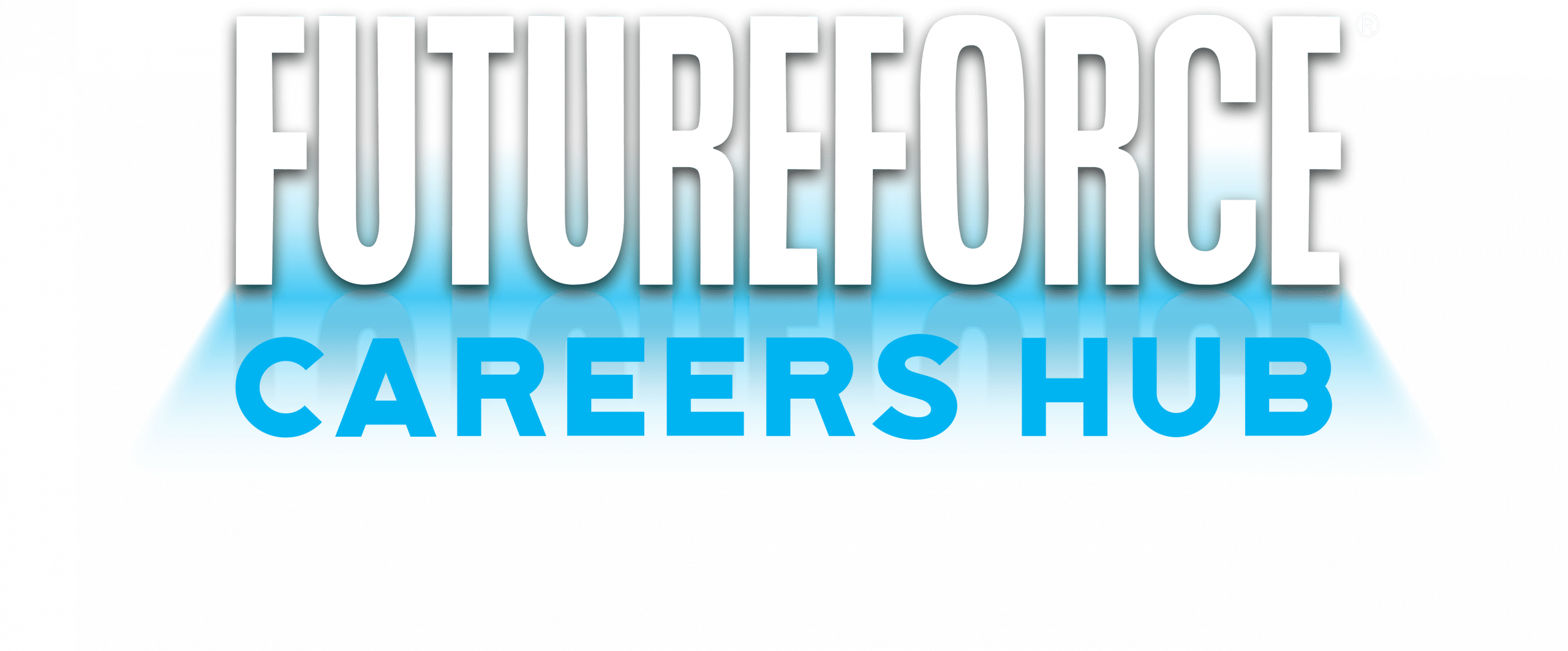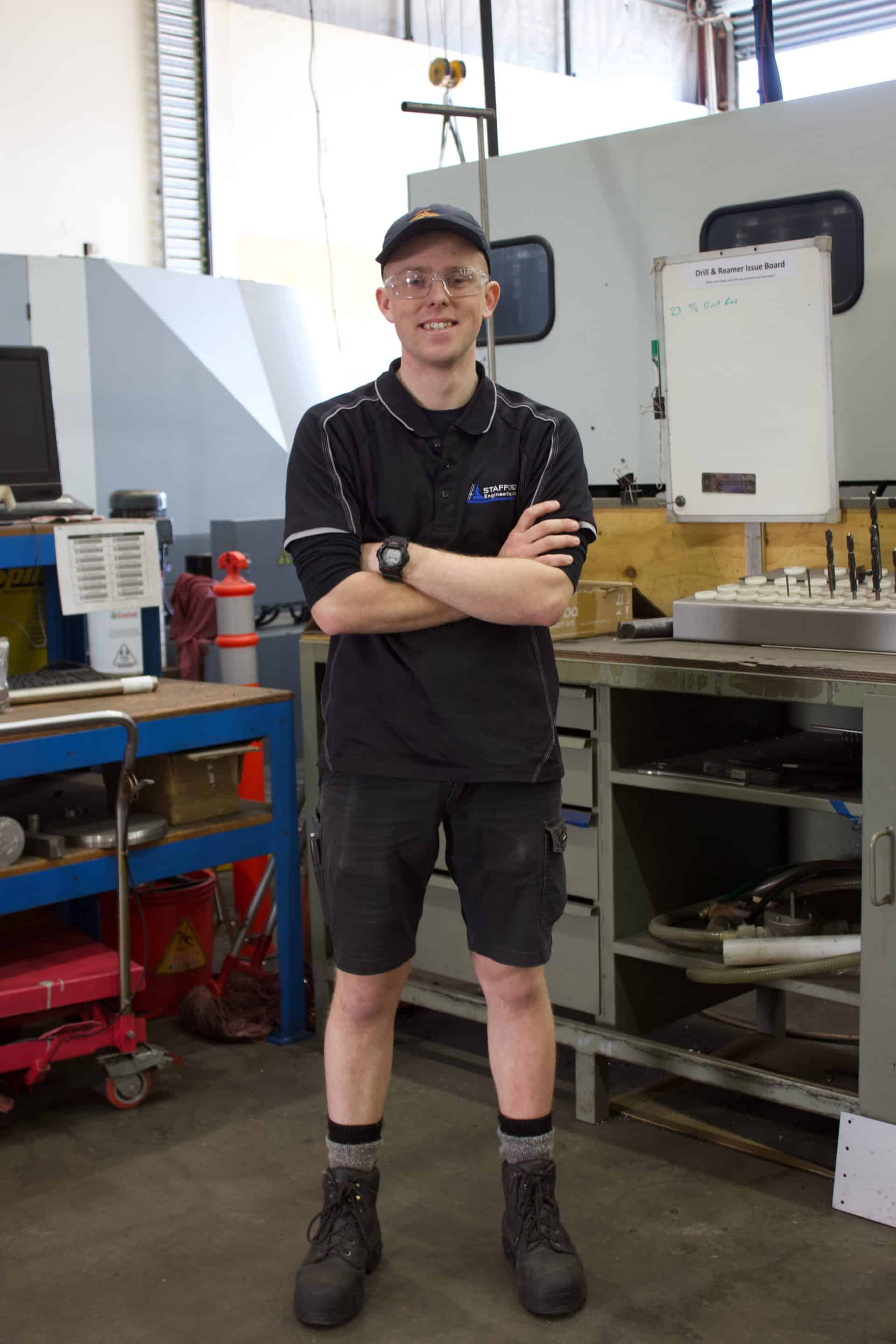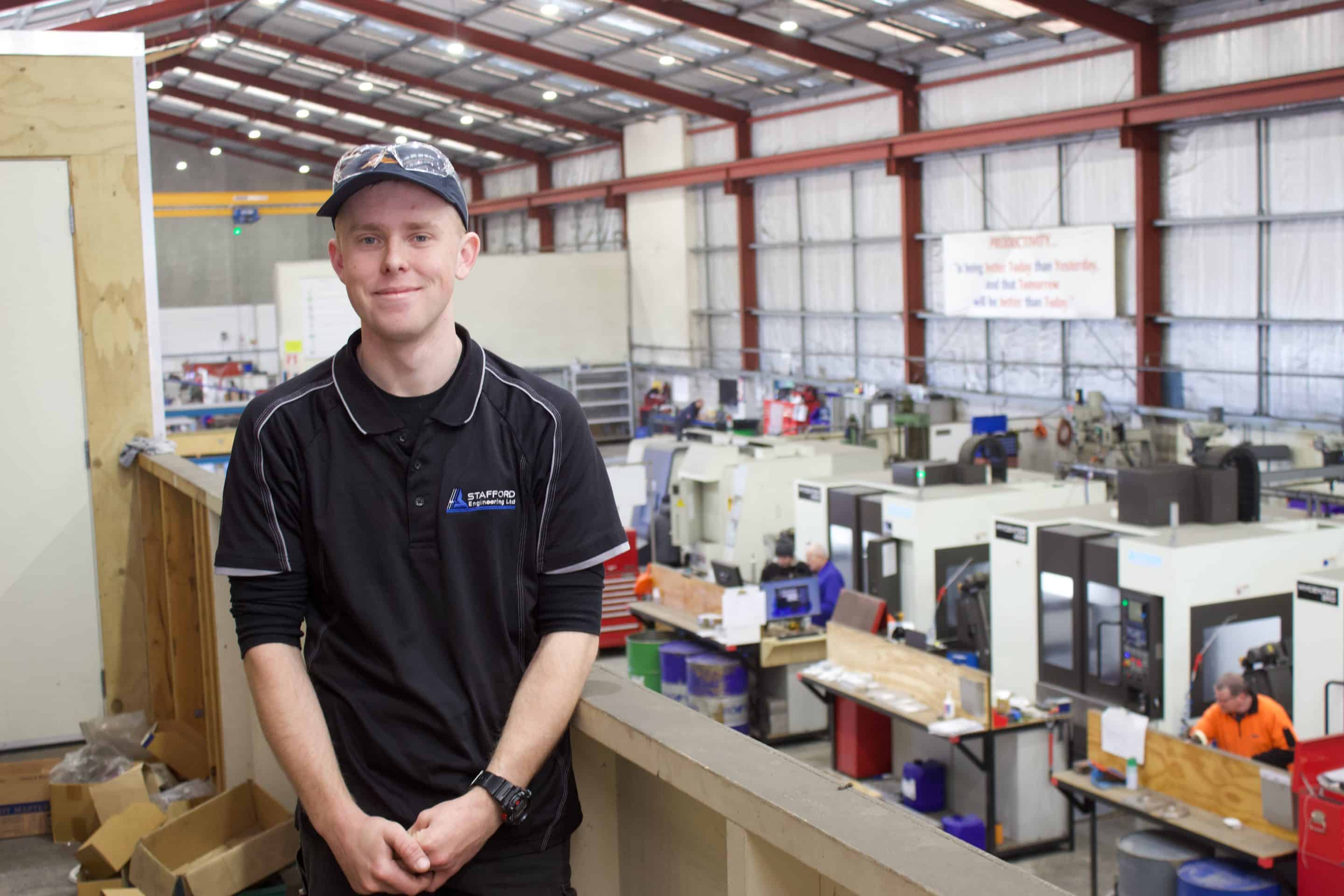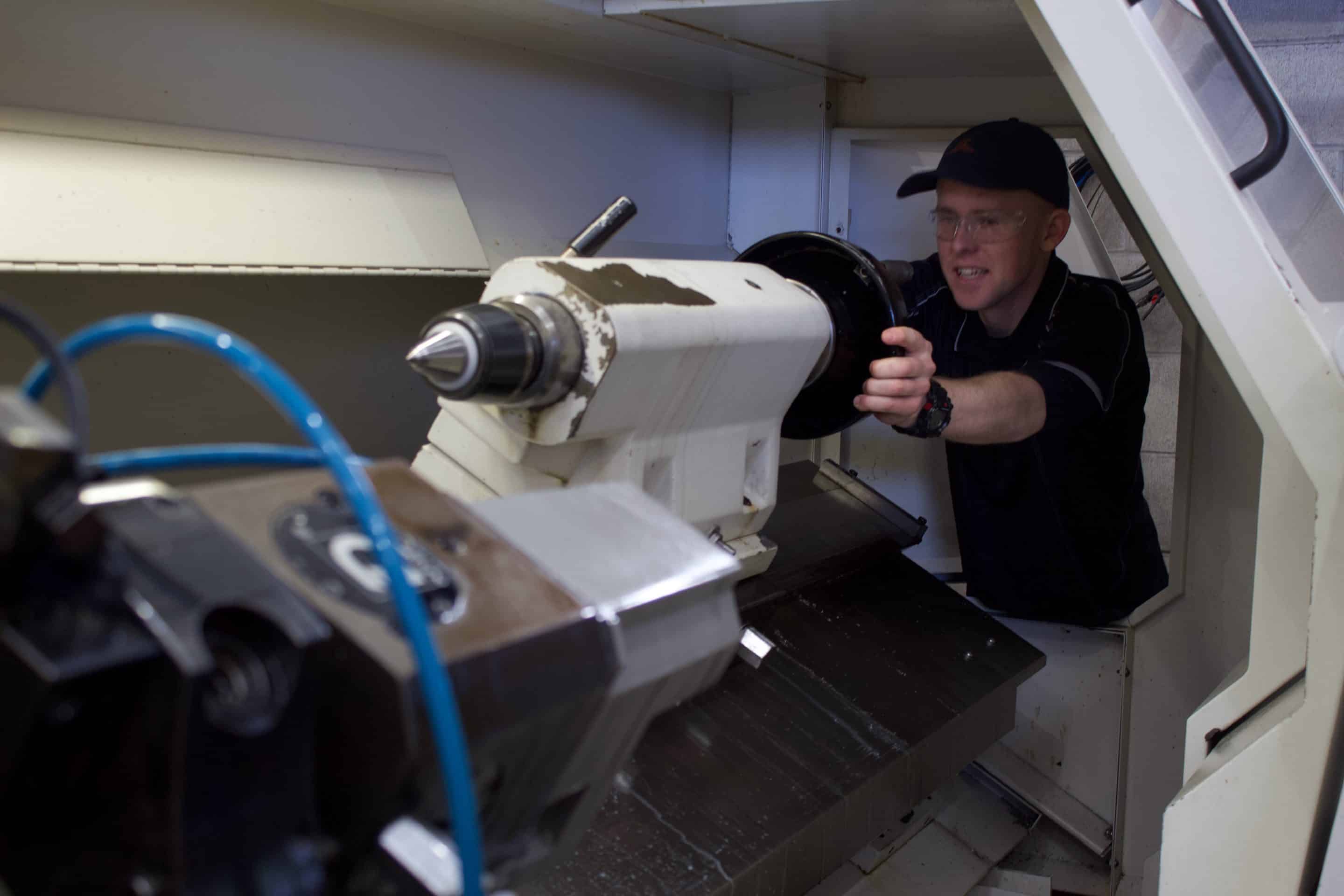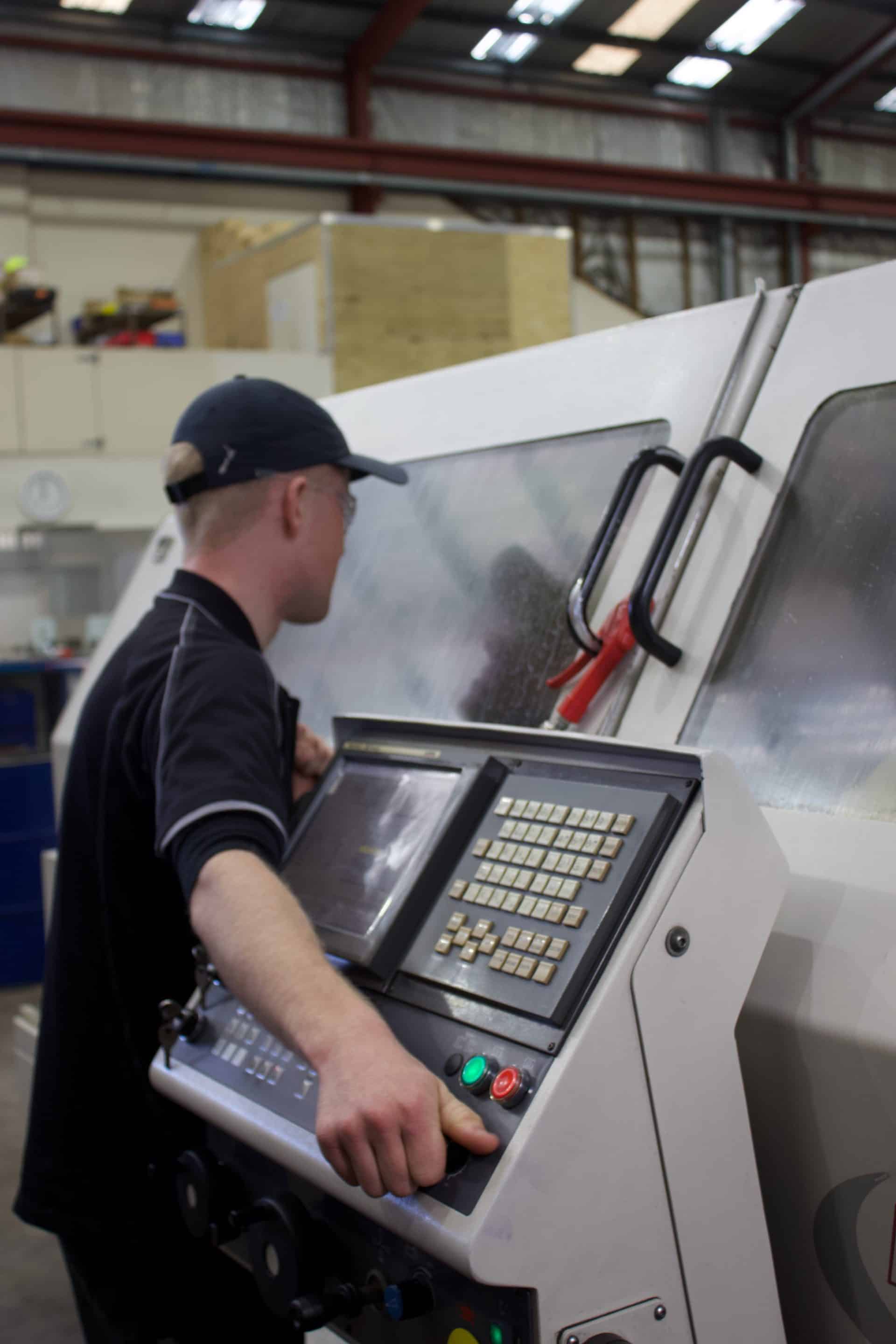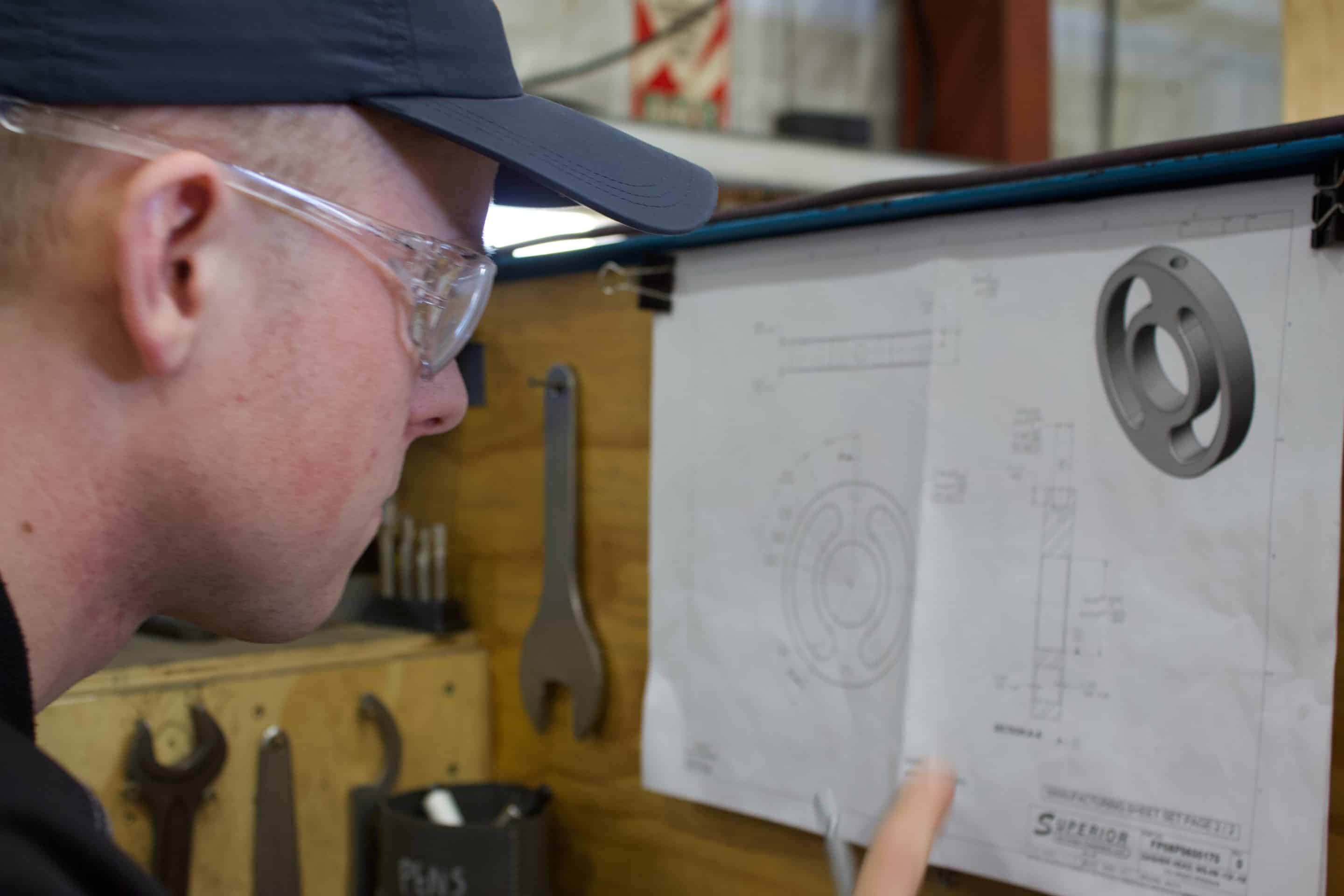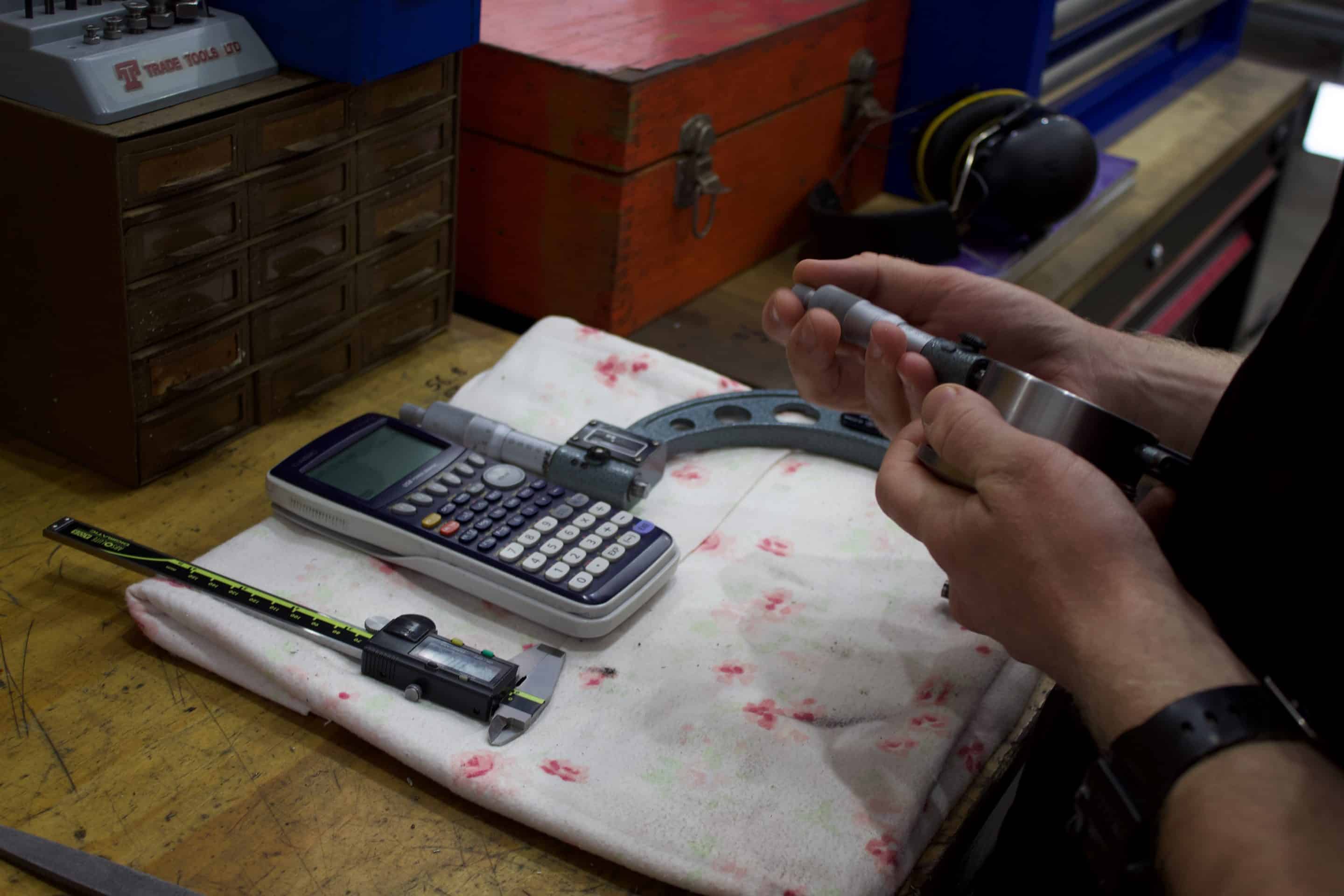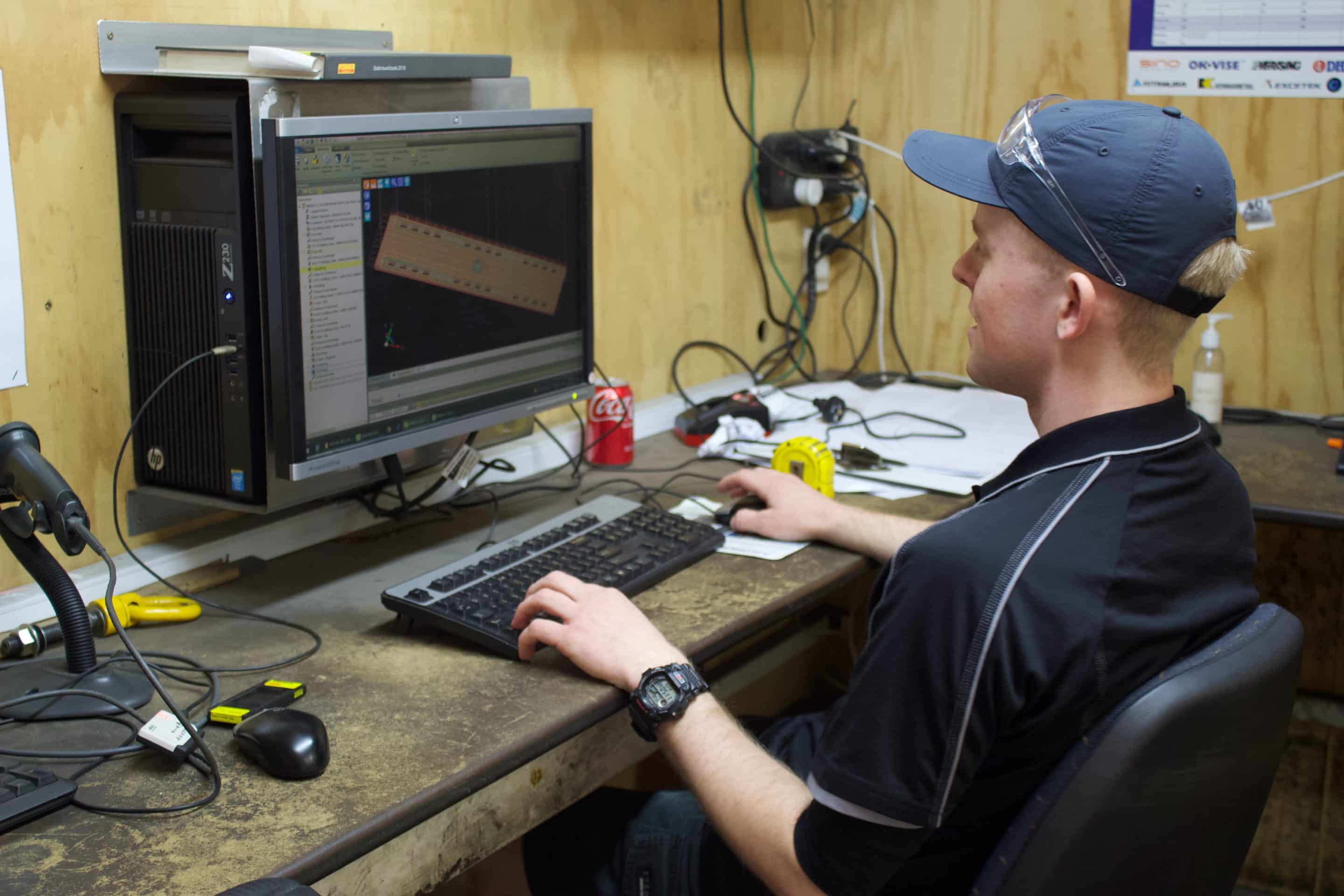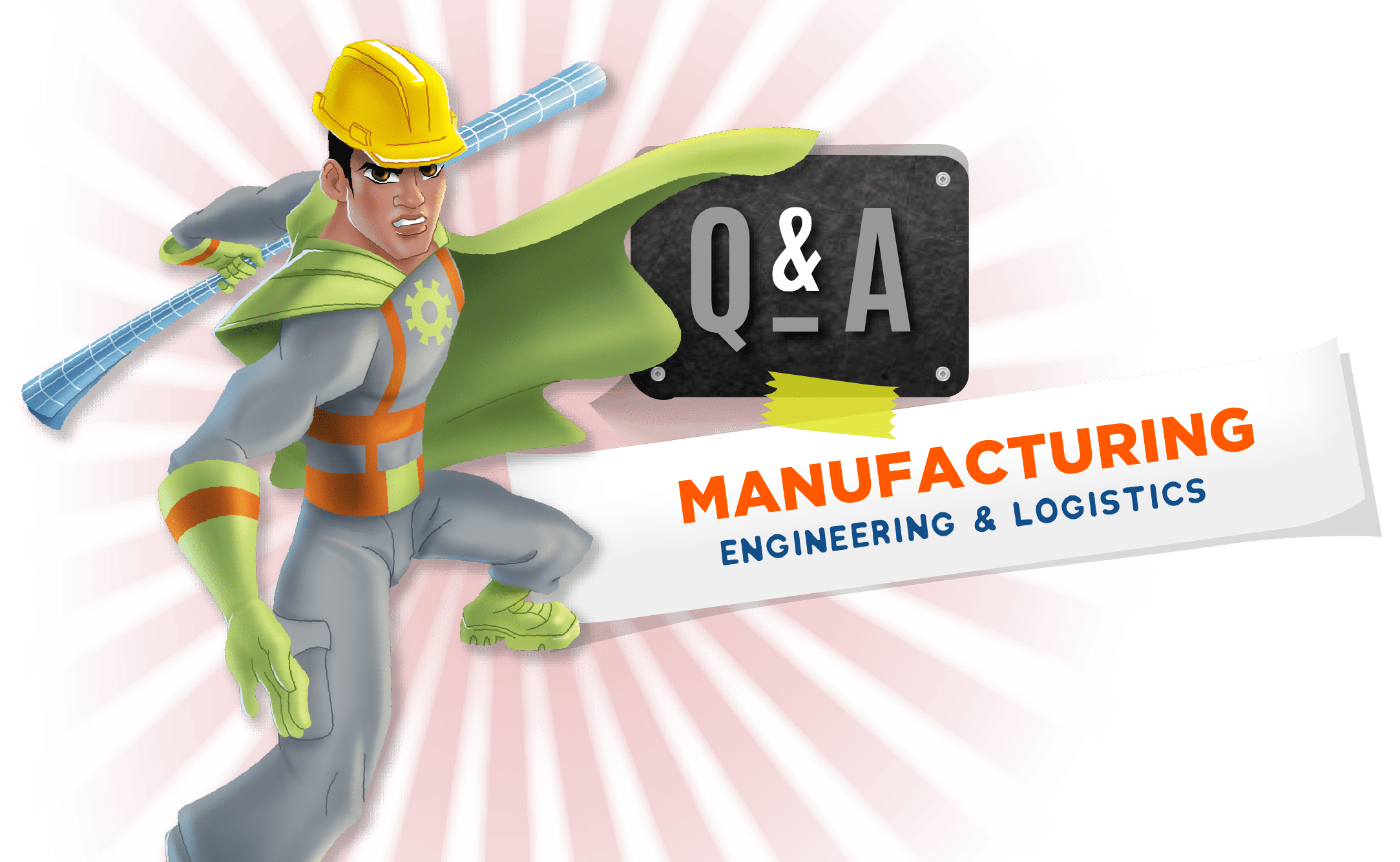
Give it a go!
Career Pathways with Stafford Engineering
Just ask former Te Awamutu College student Daniel, who is smashing out his Machining Apprenticeship at Stafford Engineering in Hamilton.
Check out below what Daniel has to say about his career pathway at Stafford… and here’s some of his key tips for life after school:
- Don’t feel pressure to take a certain path – so long as you are doing something, you will be okay.
- Learn to listen – older people have a lot to teach you.
- Always start what you finish, and don’t be scared of asking for help along the way.
- Honesty is important. Dishonesty will always bite you in the butt.
- Check out TikTok for cool videos on different engineering processes!
Daniel Croad
Machining Apprentice
Top Career Tip
A Chat with Daniel about his role
Daniel Croad
Former Te Awamutu College student

What do you on the job?
How did you get interested in this career?
How did you get started at Stafford Engineering?
Stafford had a reputation for having good machining workshops!
What have you learnt on the job so far?
What challenges have you come across and how have you dealt with them?
What do you love about your job?
What are some of the challenges that you have found?
I found team work to be a bit challenging. When you’re at school, yes you do team work but it’s a completely different environment and you have to manage different departments especially in such a big company. Sometimes you find it challenging to try and manage your ideas different people’s ideas and find a mutual agreement. Project management was also something I found hard and managing all the different people in the team and all the different personalities. No one can really teach you what’s the best way, you just have to learn on the job. And if you make a mistake don’t be embarrassed by it, just learn from it.
What do you love most about working at Stafford Engineering?
What is a CNC Lathe?
source: phillipscorp.com
Tips & Advice
What do you wish you knew when you left school?
Knowing what you want to do when you leave school is not critical. You just need to choose something and try it out. If it’s the wrong thing you can always do something else. So you’ve just got to do something no matter what it is, just something. I would say not stressing so much over choosing the “right” career when you’re leaving school is my best advice.
Also knowing that there are many pathways other than uni. Lots of people ask you, “what course are you going to do?” but I’ve found the best two things have been leaving school but continuing study while you’re still in the groove of things or leaving to work to gain work experience. Then you will have a bit more money to make going to uni easier.
What advice do you have for keeping balanced/managing stress?
What is the best career advice you’ve ever recieved?
What sort of person do you need to be for this work?
Someone who has a general interest in engineering will be a good start! With machining, you’ve got to be good at working alone because you’re sometimes given a task which you complete by yourself. Then once you’ve finished you pass it on to the next person in the process. So you’ve got to be good at self managing and recognising when you need to work with others or ask for advice.
It’s useful if you are someone who enjoys tinkering with things and who is inquisitive of why things work or how do they work. And also knowing how to communicate with people is important because problems happen when you don’t understand what is required. Having good understanding and communicating well with people is key.
You’ve got to have good work ethic to start with… turn up to work and be reliable. Honesty is important, and you will come across people who aren’t honest… like when they have a bit of a “boo-boo” they try to sweep it under the rug. It’s good to be honest because in the long run, dishonesty will bite you in the butt! It’s better to just admit when you are wrong and accept your mistakes. People will trust and respect you more.
Useful school subjects/qualifications?
Graphics & Design. Being able to draw things is a very good skill because a lot of people can’t draw, and so being able to draw an object is key because it allows you to explain stuff without using any words. So when you’re not good at explaining things to people you can draw it for them. Most people can understand a drawing when you explain it well enough, so that removes that kind of uncertainty.
Definitely Maths. I did calculus which was good when I was doing my NZDE (New Zealand Diploma in Engineering).
Physics is key, so having general understanding how forces relate to each other when you’re using different machinery. This is a really good one.
I’ve completed the Diploma of Mechanical Engineering at Wintec »
About Stafford Engineering
Stafford Engineering is a successful Hamilton business with a proud history of developing world-class engineers for the future.
Established in 1986, Stafford is a multi-disciplined precision engineering company servicing clients involved in the local and global food processing, packaging and pharmaceutical industries.
Stafford started life as a machine shop and has grown to include world-class design and fabrication capability, with about 60 team members committed to keeping customers happy and business humming.
Key strengths for this type of work include:
- Being “hands-on”
- Having an eye for detail
- Good problem solving skills
- Being mechanically minded
- Basic understanding of computer programming
- Good at maths
- Able to multi-task
- Listening skills
